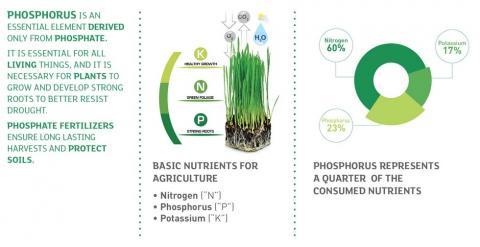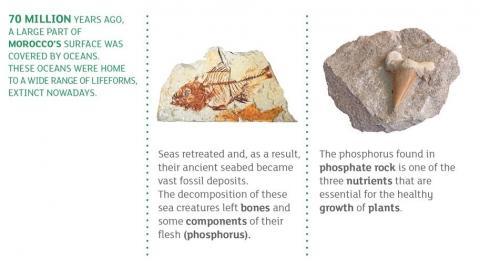


Phosphates are essential to modern life. They are the core of modern fertilizers. And just as we work with farmers improve their yields, so we want to capture more value locally by launching an ultra-modern fertilizer manufacturing plant.
The ongoing capacity building in our operations in Phosboucraa recently saw the MAD 1 billion investment into the Industrial Development Program. This equipped us with a new stocking area with a total capacity of 110,000 tons of raw phosphate, while the beneficiation plant already has the capacity to store 150,000 tons of washed phosphate.
An additional investment of MAD 1.9 billion has equipped Laayoune with a beneficiation plant housing two phosphate washing lines with a unit capacity of 400 tons/hour, and four flotation lines with a unit capacity of 100 tons/hour.
Our new plant is further enhanced by the new wharf at Laayoune, the longest in the world, with a bridge extending 3.2km for loading phosphate on to ships. In the first phase, the wharf will have a capacity of 8 million tons per year with two quays. By the second phase, the wharf will grow to three quays and a capacity totaling a 11 million tons per year.
Our MAD 20.2 Billion industrial program will allow us to add even more value to the phosphate we mine, ensuring that the products meet the highest standards at every step in the chain. In 2022, we will open a fertilizer complex capable of manufacturing 1 million tons of fertilizer per year, with a focus on exports across Africa.

